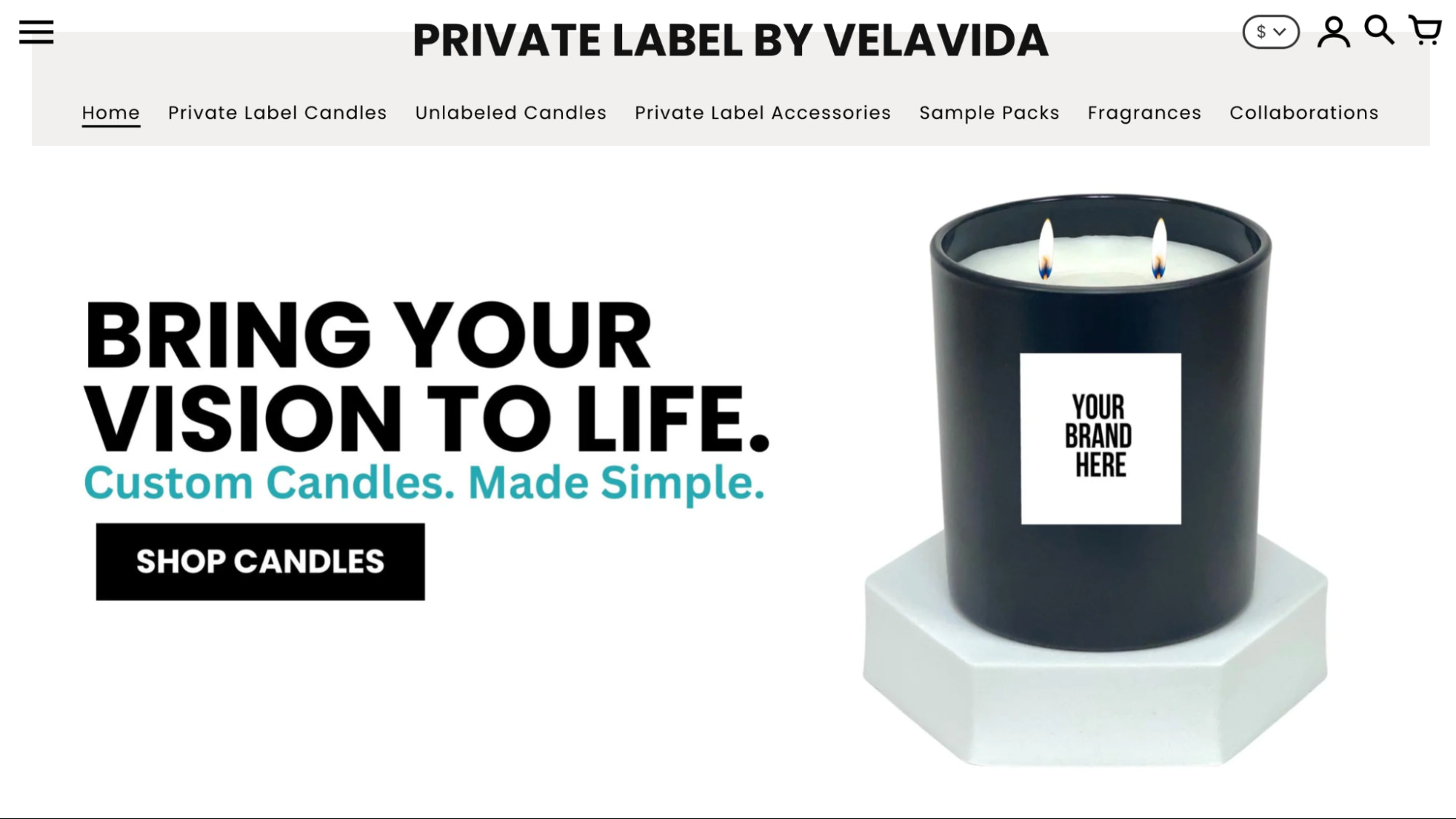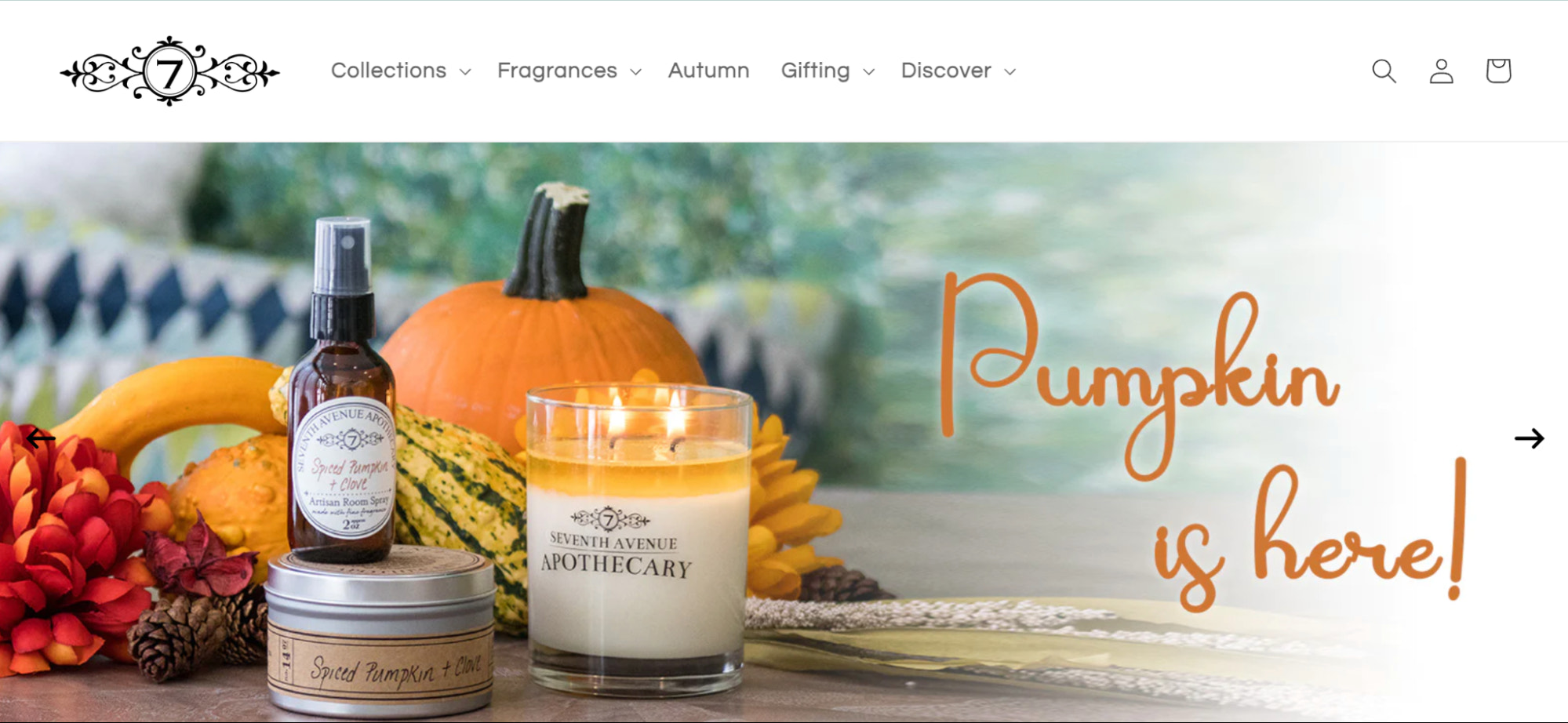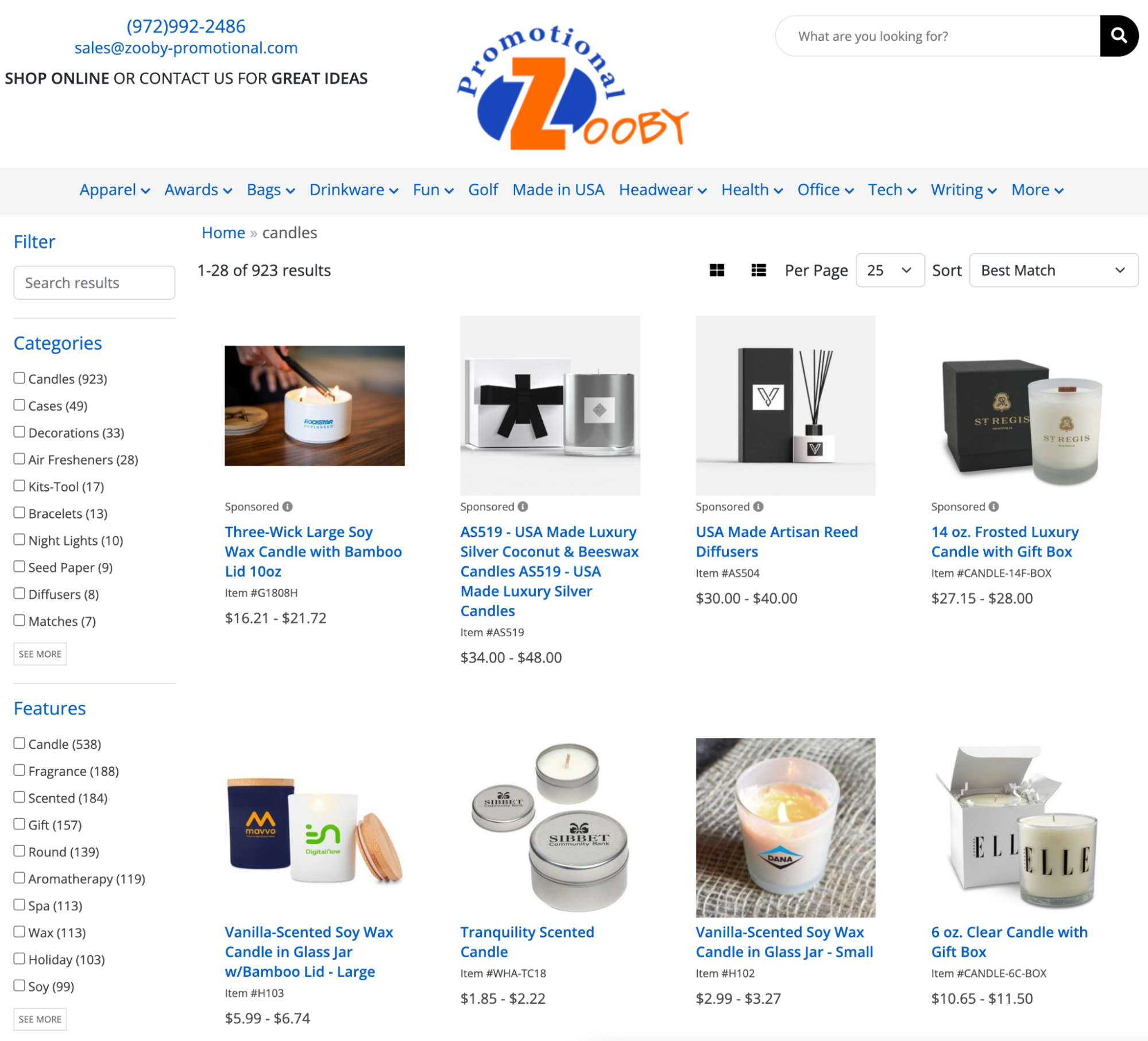Candles are a viable online business, both on their own and as a complement to other products.
There are tons of uses and types of candles, so it’s important to know what to look for in wholesale candle vendors before you commit to any agreements. And even if you have tons of experience as a consumer of candles,being a proprietor of candlesis a whole different story.
If you’re looking for wholesale candle vendors, this article will walk you through recommendations, and how to vet the best one for your needs.
Table of contents
7 best wholesale candle vendors
The best wholesale candle vendor really comes down to your unique needs. To help you get started in your search, here are some of the top wholesale candle vendors.
1. Faire

Fairehas more than 100,000 independent brands you can buy wholesale from. You can find candles, home décor, clothing, jewelry, and so much more all in one place. Simply search “candles,” or use a more specific query, like “pumpkin candles,” and browse the different candle makers available.
On Faire, you can find private label candles, soy wax candles, festive candles, creative candles, and the like. It’s a good marketplace if you’re looking for candles to sell that are outside the standard glass or matte black jar.
2. Private Label by Velavida

Private Label by Velavidais a Richardson, Texas–based candle supplier that specializes in this niche. Choose from unlabeled or private label candles, completely customizable to your vision with its options of more than 15 containers and more than 40 fragrances.
This supplier has a low order minimum of 12, so it’s possible to do a small-scale test run before committing to a large wholesale order.
3. Match Fragrance

Match Fragrancespecializes narrowly in candles, so you can rest assured knowing they’re candle experts. The UK-based supplier offers soy candles, wax melts, and melters.
Every product is made in the supplier’s 10,000-square-foot factory in Plymouth. You can use itswhite labelMay & Maple products or private label option for your own branding.
4. Seventh Avenue Apothecary

年代eventh Avenue Apothecaryoperates out of Tampa, Florida. Its niche is in candles and fragrances, including products like room sprays and fragrance oils. Its candles are 100% soy.
Because Seventh Avenue Apothecary specializes in candles and related products, it has high-quality items that are likely to impress customers of all kinds. You have tofill out an applicationto become a wholesale partner with the brand.
5. Bulk Apothecary

Headquartered in Aurora, Ohio,Bulk Apothecaryhas all the raw materials you need to create your own candles. Find fragrances, wax, containers, essential oils, and more to formulate the perfect candle.
The supplier also has a line ofprivate label products, including candles, as well as bath bombs, cold process soaps, and other personal care products—especially appealing if you’re not interested in making thecandlesyourself.
6. Tropical Labs

Tropical Labsis a Tampa, Florida–based wholesale supplier specializing in plant-based and organic personal care products. If these are niches you’re interested in tapping into, Tropical Labs could be the vendor for you.
In addition to candles, Tropical Labs makes skin creams and lotions, shave gels, and hair care products, among other related products. You can also use its private label products or tap into Tropical Labs’ research and development offerings.
7. Zooby

Zoobyis a great option if you’re looking for budget-friendly wholesale candle products. It has a huge range to choose from, including scented and unscented, soy, and luxury, as well as various types of containers.
The Dallas-based wholesaler also offers a huge range of other wholesale products. If you want to expand your product line beyond candles, you can tap into Zooby for apparel, office items, consumer electronics, and more.
How to find and choose wholesale candle vendors
1. Determine what candles you want to sell
The variety of candles out there is practically endless:
- 年代cented vs. unscented: There are candles for ambiance while others offer olfactory benefits.
- Candletype: Votives, container candles, and pillarsare the most populartypes of candles, but there are many other kinds. You can also sell tea lights, floating candles, tapers—there’s a candle for pretty much everything.
- Ingredients: We’ll dig deeper into this in a bit, but there are soy, beeswax, synthetic, and many other different materials that can go into your candles.
It’s OK to start with one type of candle with plans for expansion in the future. If that’s your plan of attack, make sure your supplier of choice has the variety of products you’ll need.
2. Check the candle ingredients
There are many ways you can manufacture candles and tons of ingredients you can use. And as consumers become more and more aware of what goes into the products they’re using,demand for organic and natural wax candle products is rising. So it’s equally important to make yourself aware of what’s in the products you plan to sell.
The most common types of wax used in candles are:
- Paraffin: Paraffin is affordable, easy to work with, and water-resistant (ideal for floating candles). However, it’s a petroleum by-product, so environmentally conscious customers may be averse to it.
- 年代oy: Soy wax has a high melting point, so it burns slowly, which makes it ideal for fragrance and colored candles. It’s also more environmentally friendly, as it’s manufactured from soybeans. It doesn’t hold its shape well, so this works better in containers.
- Beeswax: Another environmentally friendly (and cruelty-free) ingredient, beeswax is natural, non-toxic, and renewable—and also hypoallergenic. A lot goes into producing this type of wax, so it can be pricier than other options. Beeswax holds its shape well, meaning it can be used as a standalone candle without a container—votives, pillars, sticks, etc.
- Coconutwax: Coconut wax is renewable, natural, holds scent well, and burns slowly. It has a low melting point, so it’s best in containers. It’s also more expensive than other waxes.
Many candles also have scent in the form of natural ingredients, essential oils, or synthetic concoctions. Generally speaking, synthetic fragrances and ingredients are on their way out. They’re harmful to the environment and to people’s health.
You might see synthetic ingredients disguised as “fragrance.”While the FDAallows for this vague language to protect trade secrets, some manufacturers have taken advantage of the loophole to omit listing certain ingredients. Fragrance can mean synthetic, so it’s best to avoid. Instead, look for natural ingredients.
3. Find a supplier with products that match your target market
If you have an existing business, you likely alreadyknow about your customersand their preferences.
You might be looking to launch a new business dedicated solely to selling candles. In that case, look for a wholesale supplier that has a variety of candle offerings.
Maybe you own a salon or spa and that has retail as a component and want to test the candles in your space and for sale. In that case, look for a supplier with a focus on aromatherapy. Or maybe you want to add candles to your subscription boxes, in which case you’ll want small and fun votives or tin candles that match the other products featured in your boxes.
It’s always a good idea to define who you plan to sell to and the types of candles they will want to buy before you choose a candle supplier.
4. Choose a candle supplier that can grow with you
As your business grows, you’ll reach more customers andmake more sales. This means you’ll need to place bigger orders with your suppliers and potentially introduce new candle products. Some suppliers offer candles as an adjacent offering to other products. Others have more of a focus on candles and related products.
It’s also important tonote the seasonal trendsthat affect the candle industry and ensure your supplier can fulfill your needs during periods of peak demand. Think about the holidays, for example. Inquire about lead times and how quickly their operations can scale to fulfill large orders—as well as what the maximum order size is.
5. Factor in import fees
International selling comes with additional taxes and tariffs. These import fees, or customs and duties, are applied to both the seller and the buyer in some cases. This affects you, your suppliers, and your customers.
Each country has its own product classification system, which helps them determine associated duties and fees:
- US:USITC tariff database
- UK:GOV.UK trade tariff service
- EU countries:Trade market access database
Candles have two different classification possibilities in the US:
- Textile wicks, woven, plaited or knitted, for lamps, stoves, candles and the like; gas mantles and tubular knitted gas mantle fabric (HTS 59080000): 3.4% tax
- Votive-candle holders of glass, nesoi (HTS 70139935): 6.6% tax
When you research and plan for import fees ahead of time, you’ll be able to more accurately determine profitability and better price your products.
6. Final vetting of your candle supplier
Ask potential suppliers for documents and resources to prove their legitimacy, like:
- Business license/registration
- Compliance certificates
- Proof of FDA registration
- Current customer references and their contact info
Conduct your own investigation, too: type keyword phrases like “[supplier name] reviews” and “[supplier name] scam” into Google to help you uncover any red flags.
年代ummary: Finding a wholesale candle vendor
Finding a wholesale supplierfor any product is exciting but intimidating—and it’s critical to business success. To find the right candle supplier, consider these six things:
- Know what types of candles you want to sell.Consider whether you want to have the option to grow your candle product line over time.
- Get acclimated to candle ingredients.Understand what type of wax is used, as well as additional ingredients.
- Pick a supplier with products that resonate with your customer.After you’ve defined your target market, understand what types of candles they need.
- Think about the future.Find a wholesale candle supplier that is prepared to grow with you.
- Calculate import fees.When importing and exporting internationally, there may be additional taxes you’ll need to consider when crunching numbers.
Verify everything. Get all the documentation you need to prove the legitimacy of your potential wholesale supplier.
Wholesale candle vendors FAQ
Who is the best candle supplier?
年代ome of the best candle suppliers are Private Label by Velavida, Match Fragrance, and Seventh Avenue Apothecary.
Is selling candles a profitable business?
Yes, selling candles can be a profitable business. If you price your products well and market strategically, you can earn a profit from a candle business. Candles are always in demand.
How to sell candles in bulk?
- Determine what types of candles you want to sell.
- Figure out who you want to sell bulk candles to.
- Factor in import and export fees.
- Understand how you’ll manufacture the candles.
- 年代tart connecting with businesses that may want to buy candles in bulk.
How do I become a candle vendor?
- Determine what candles you want to sell.
- Check the candle ingredients.
- Find a supplier with products that match your needs.
- Choose a candle supplier.
- Factor in import fees.
- Vet your wholesale candle vendors.
- 年代tart selling.

